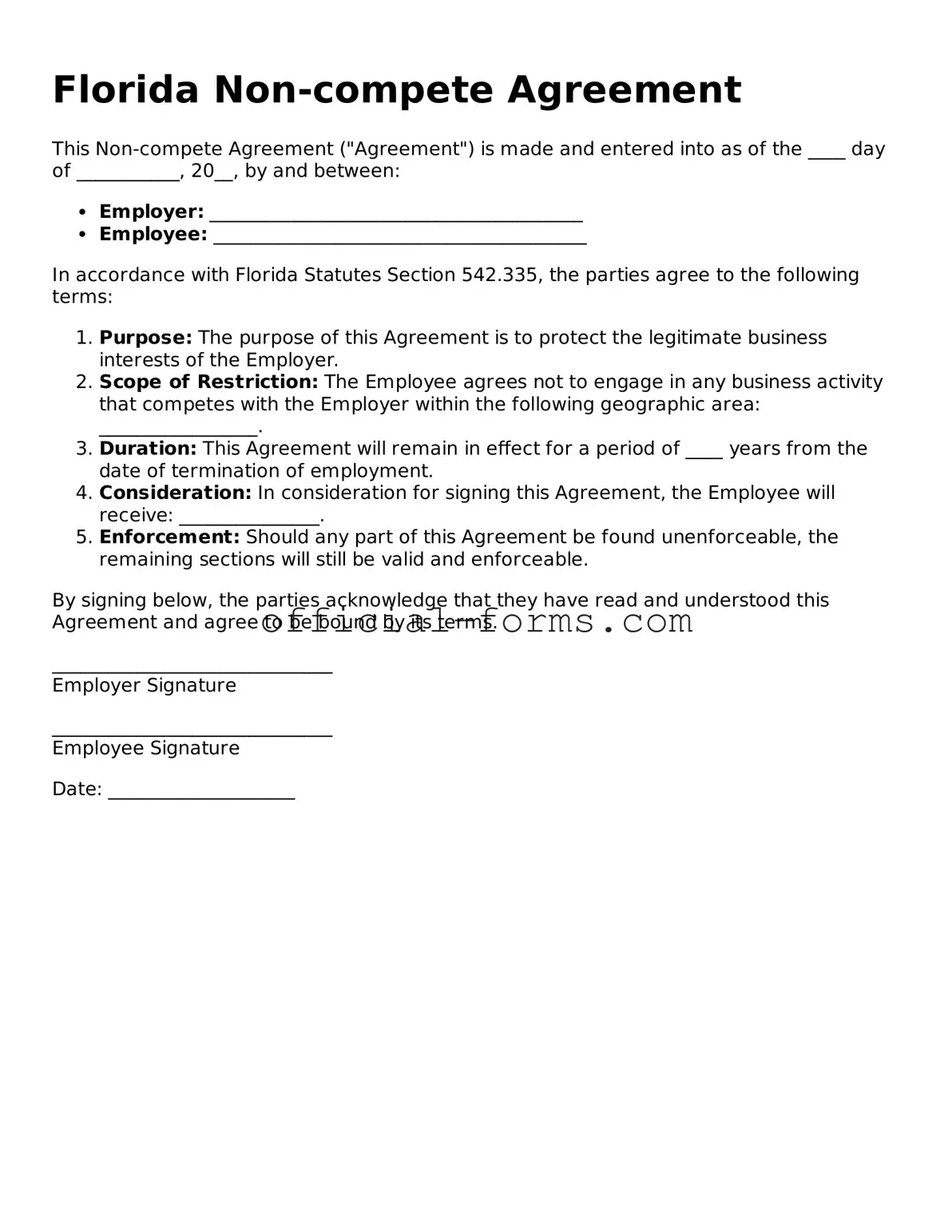Official Florida Non-compete Agreement Document
A Florida Non-compete Agreement form is a legal document designed to restrict an employee's ability to engage in activities that compete with their employer after leaving the company. This agreement aims to protect the employer's business interests and confidential information. Understanding its nuances is crucial for both employers and employees navigating the job market in Florida.
Open My Non-compete Agreement Now

Official Florida Non-compete Agreement Document
Open My Non-compete Agreement Now
Don’t leave your form incomplete
Finish Non-compete Agreement online quickly from start to download.
Open My Non-compete Agreement Now
or
➤ PDF
